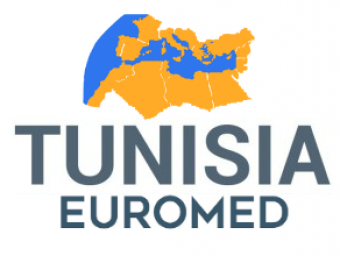Here’s what to know about the state of affairs in Libya, a country battered by war and without a central authority.
Moammar Gaddafi ruled Libya as a strongman from 1969 until 2011, when he was killed by rebel forces during a NATO-backed Arab Spring uprising. Gaddafi — whom The Washington Posts described as the “eccentric, unpredictable and brutal face of Libya” at the time of his death — centralized power, exploited the country’s oil resources and stunted the role of state institutions to preserve his rule.
Since 2020, Libya has settled into a chaotic stasis, with two competing governments. In the east, Khalifa Hifter heads a coalition of factions and irregular fighters known as the Libyan National Army, or LNA. Libya’s massive oil reserves are concentrated in the east. In the west, the U.N.-supported Government of National Accord, or GNA, rules from the capital, Tripoli, where Libya’s central bank and national oil company are based.
Libyans have been forced to contend with the challenges of life in a country governed as two failing states.
“Armed groups and authorities remain responsible for systematic abuses including long-term arbitrary detention, unlawful killings, torture, and forced disappearances,” according to the New York-based advocacy group Human Rights Watch. “Hundreds remain missing since the end of the 2019 Tripoli war and thousands remain displaced in Libya due to damaged properties, presence of landmines, or fear of persecution.”
The country, with terrain ranging across desert and coastal communities, is highly vulnerable to human-induced climate change. But improvements to and maintenance of basic services and infrastructure, such as the country’s networks of dams, has been deprioritized, said Mary Fitzgerald, a Libya expert at the Middle East Institute, a Washington think tank.
“Between 2011 and 2014, there were already concerns about the state of Libyan infrastructure,” Fitzgerald said. “And then Libya went through a six-year civil conflict from 2014 to 2020 and a lot of infrastructure was damaged during that conflict. In the three years since, you have a situation of rival government, which has yet again complicated political dynamics.”
For Derna, the eastern coastal city struck by this week’s floods, the situation was particularly dire. Nearly a quarter of Derna was destroyed. Much its infrastructure dates back to Italy’s occupation of the country in the early 20th century. More recently, Islamist rebels controlled the city, until Hifter’s forces captured it in 2019.
The area is home to “the marginalized of the marginalized of the conflict,” said Natasha Hall, a senior fellow at the Center for Strategic and International Studies, a Washington think tank, who focuses on humanitarian emergencies in the Middle East.
Disputes between leaders in the east and west over political positions and oil profits periodically flare, leading to shutdowns and drops in production.
Thousands of migrants and asylum seekers die each year in the Mediterranean Sea trying to reach Europe from North Africa. But because of exploitation by human smugglers, militants and Libyan authorities, Human Rights Watch has said, migrants in Libya “face systematic and widespread abuses including torture, arbitrary detention, forced labor, and sexual assault.”
The United States and the European Union, along with the United Nations, recognize the Tripoli-based government, the GNA, as legitimate. Turkey has allied with the GNA and provided it drones.
But some other key U.S. allies in the region — such as the United Arab Emirates, Egypt and Jordan — have sided with the renegade Hifter and LNA in the east. France aided Hifter’s forces in fighting Islamist militants, though Paris has denied backing the LNA.
Russia has been a key Hifter ally — and in particular the Wagner Group, the Russian mercenary outfit that until recently was led by Yevgeniy Prigozhin, who died in a plane crash over Russia in August after leading a short-lived mutiny against the Kremlin. In 2019, Wagner operatives joined Hifter as he renewed efforts to oust the U.N.-backed government in Tripoli.
Extreme weather, vulnerable geography, and weak dams and roads made Sunday and Monday’s floods Libya’s worst in almost a century, The Post reported.
But politics will be an overriding factor complicating the search and rescue and humanitarian response, analysts said.
“The limit of the Tripoli-based government is that it does not access the east,” said Claudia Gazzini, a senior Libya analyst for the International Crisis Group, a think tank headquartered in Belgium. “The limit of the eastern-based authorities is that they need [financial] support from Tripoli … and support from the international community that goes through, that coordinates with Tripoli for the relief efforts.”
Gazzini said efforts so far had involved “some form of coordination,” but no official step toward “the two sides joining hands.”
Adding to the access issues, the eastern government, Fitzgerald said, has “not been particularly open to outsiders, and so forth. But I think the needs are so huge, that no one, in the east or west, has the capacity to respond to this situation.”
So far, LNA allies such as Egypt, Jordan and the UAE have sent search-and-rescue teams and medical aid. Turkey, which has an economic presence in the east, sent several planes carrying aid and more than 150 emergency personnel. Qatar, another GNA backer, sent at least two planes’ worth of aid, including for field hospitals. France is sending a field hospital.
The United States said it is sending support through relief organizations in coordination with Libyan authorities and the United Nations. The U.N. Central Emergency Response Fund said it has allotted $10 million to the flood response.
Algeria, Italy, Kuwait, Spain, Tunisia and the United Kingdom, among others, have sent food, specialized emergency equipment and search-and-rescue teams.
The “disaster that has hit Derna has really brought together the country, the people, most importantly,” Gazzini said. “I would not give political weight to the cooperation that exists between east and west, this is people-to-people cooperation.”





